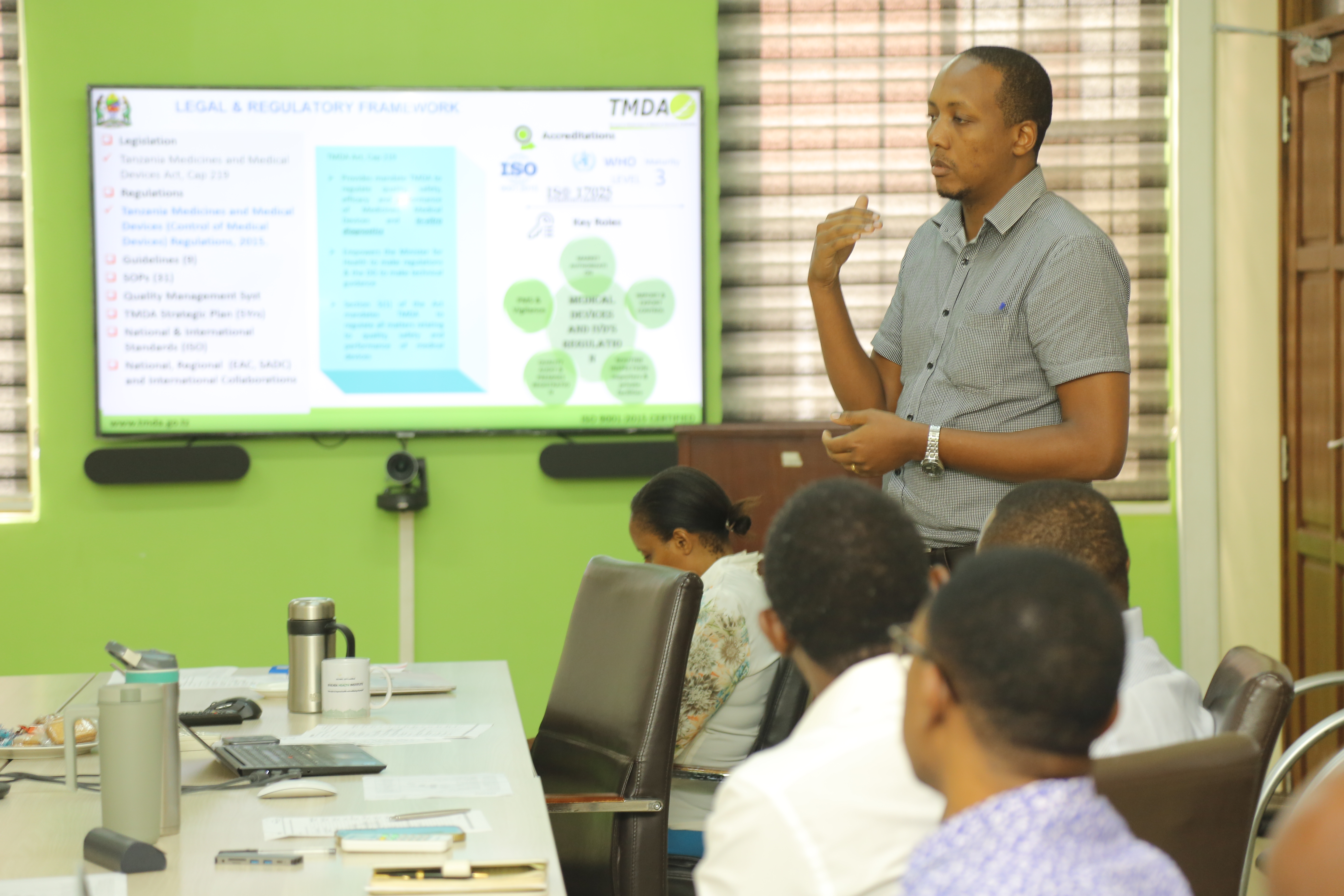
INAUGURATION: Ifakara unveils institutional biosafety committee

Members of the Institutional Biosafety Committee (IBC) of the Ifakara Health Institute for the first time, met at the Institute’s Dar es Salaam offices in Mikocheni on Tuesday, March 28, 2023, for their first inaugural meeting.
The inaugural meeting was an initial step for all 7 members of the IBC including 12 invited participants to come together and map out ways they could work together to accomplish the goals of the IBC – which is to create a conducive environment for conducting genetic research.
Last year, Ifakara set up the IBC whose main role is managing the monitoring of biotechnology regulations. The institute has recently begun to engage in genetic research on mosquitoes, which is a new area of research for the Institute.
This IBC is made up of independent people who will be advising Ifakara Chief Executive Director, Dr. Honorati Masanja, and providing guidance on strategies for biotechnology.
The meeting kicked off with welcoming remarks from Ifakara CED, Dr. Masanja. He started his remarks by congratulating everyone for being part of the ICB. He also thanked them for accepting the membership and taking the time to make the meeting possible. Afterward, Dr. Masanja briefly gave an overview of the Institute – its history, governance structure, research work and platforms, its projects and the partners involved.
Following the opening session, the IBC proceeded with a series of presentations from the IBC members including presentations on various research projects within Ifakara that will require biosafety oversight. Dr. Brian Tarimo, the IBC Secretary presided over the session.
The first batch of presenters included Thomas Chali, Senior Environment Officer from the Vice President’s Office, Environment Division, who presented an overview of local and global biosafety laws and regulations and Dennis Tilya, Drug Inspector from Tanzania Medicines and Medical Devices Authority (TMDA), who presented an overview of local and global regulations for diagnostics and therapeutics.
Other presenters included Research Scientists from Ifakara’s Dar, Bagamoyo and Ifakara offices whose presentations covered research projects within Ifakara that will require biosafety oversight. The research projects range from studies on new tools for malaria control to next-generation therapeutics that include malaria vaccines and gene editing.
Participating members included Prof. Emmarold Mneney, the Executive Secretary of the Biotechnology Society of Tanzania (BST) and Biotechnology Research Scientist; Dr. Ally Mahadim, a Lecturer from the University of Dar es Salaam (UDSM); Dr. Beatrice Lyimo, the Acting Manager of the National Science and Technology Development Fund, COSTECH; and Research Scientists from Ifakara’s three office branches in Bagamoyo, Dar and Ifakara.
The meeting ended with closing remarks from Dr. Fredros Okumu, Ifakara’s Director of Science.
Following the successful inaugural meeting in Dar, on March 29, the IBC travelled to Bagamoyo to visit Ifakara's research platforms located at Kingani. During the visit, they toured various research sites where various vaccine research, drug trials and viruses and antibiotics resistance research are currently being conducted.
More About the Institutional Biosafety Committee (IBC) of the Ifakara Health Institute
The Institutional Biosafety Committee (IBC) was established in August 2022 after Ifakara Health Institute (IHI) expanded its research portfolio on control and elimination of vector-borne diseases to include genetic engineering technologies through modern biotechnology.
To comply with international and national biosafety laws and regulations, and to follow international best practices, the institute established the IBC which has been certified and registered by the national biosafety focal point, the Vice President's Office, Division of Environment of the Government of United Republic of Tanzania.
Currently, the IBC is composed of seven members with two members being from inside the institute and three from outside. The IBC will have the full mandate for oversight for all biosafety-related matters for projects that apply/utilize genetic engineering through modern biotechnology. It is expected that this IBC will perform exemplary work to guide the institute in this new line of research and serve as a model for other IBCs in institutes inside and outside of the country.
